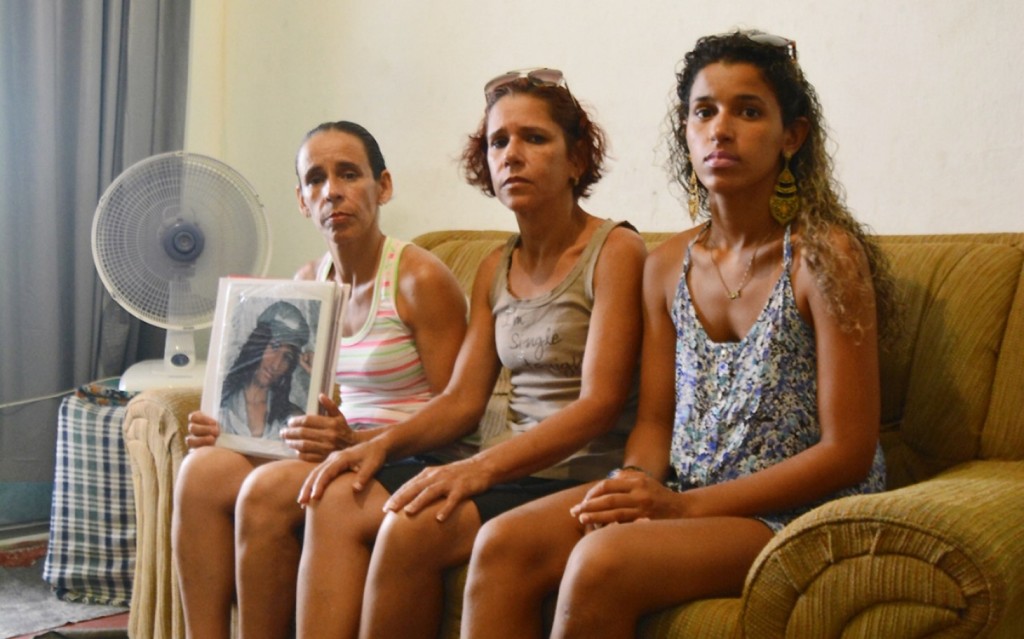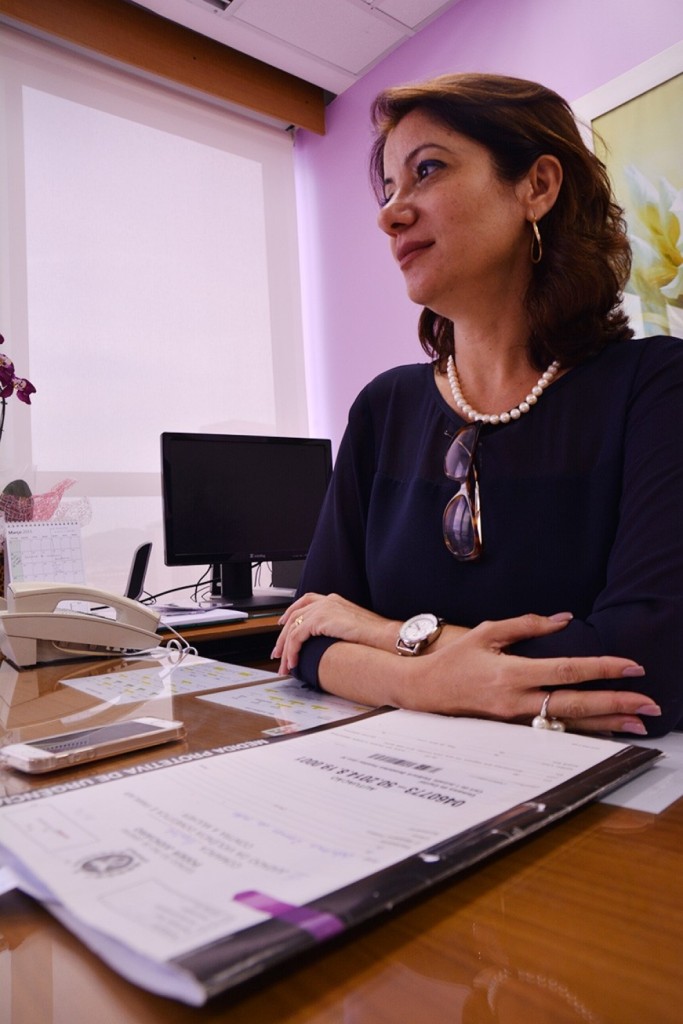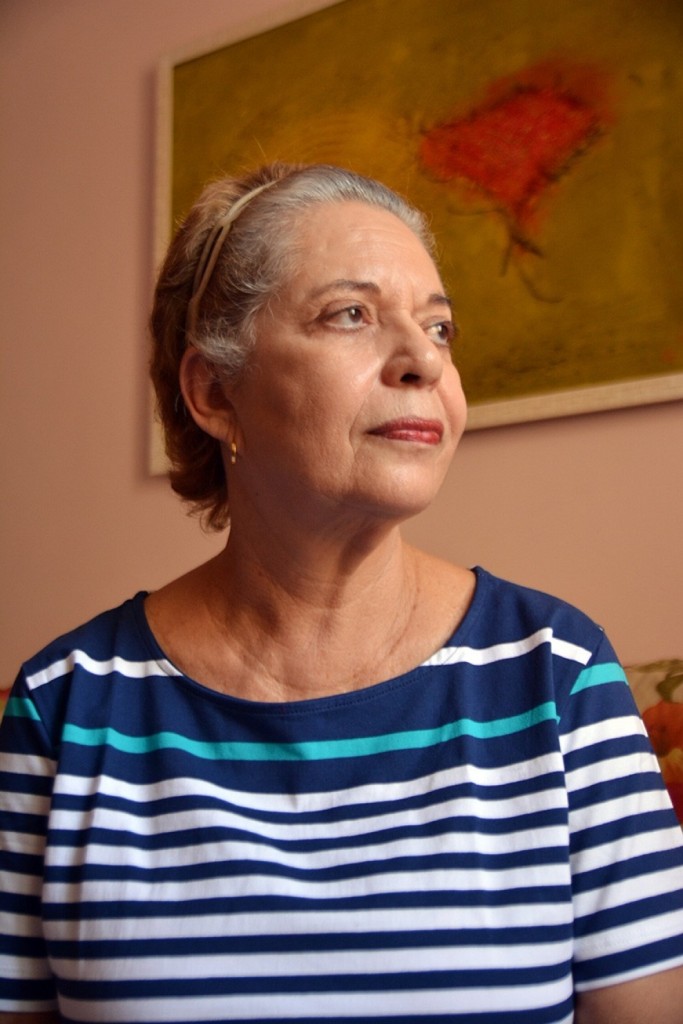Brazil Passes Femicide Law to Curb Domestic Violence
LATIN AMERICA AND THE CARIBBEAN, 11 May 2015
Donna Bowater & Priscilla Moraes – Al Jazeera America
Legislation defines gender-based killings and sets out tougher punishments for attackers.
10 May 2015 – “My best hope is that he dies,” the tall, slight and articulate 45-year-old speech therapist said calmly of her husband. “I know that he can kill me.”
The woman, who asked not to be identified, had gone to the courts in Rio de Janeiro to seek protection from her husband of 22 years.
After her husband suffered a psychiatric breakdown in 2001, she said, he became violent and threatened to kill her, their daughter and himself. “I learned that between him and me, it’s me first,” she said.
It is estimated that more than 13 million women have been victims of domestic abuse in Brazil, where a woman is killed every two hours. Despite measures to reduce domestic violence with the Maria da Penha law in 2006, government figures suggest 700,000 women still live with aggression and assaults. Out of 84 countries, Brazil had the seventh-highest rate of women killed, according to the World Health Organization.
But women’s rights campaigners hope a femicide law passed in March that defines gender-based killings and sets out tougher punishments will bolster legislation that has so far failed to curb violence against women. The penalty ranges from 12 to 30 years in prison; under the new law, the tariff can be increased by a third if the victim is pregnant, is under 14, is older than 60 or has a disability or if the crime happens in front of the woman’s parents or children.
“A law like this has a symbolic significance,” said Carla Batista, a gender and feminism expert at the Federal University of Bahia and member of the Latin American and Caribbean Committee for the Defense of Women’s Rights. “It reinforces what has already been recognized under the Maria da Penha law —violence against women is a crime, cannot be accepted and needs to be eradicated from our society.”
“It seems that the necessity of a law that criminalizes femicide also signifies a recognition of the state’s inability to deal effectively with the problem,” she added.
At Projeto Violeta in downtown Rio, judges work to expedite cases of domestic abuse and speed up access to court orders under the Maria da Penha law. In almost two years, the initiative — a partnership between the courts, public prosecutors and civil police — has helped more than 650 women escape abusive partners or relatives. Working within the legal system, the public project receives referrals from police, and its legal experts assist victims immediately, offering swift recourse.
The Maria da Penha law, named after a domestic abuse survivor who fought to have her husband convicted, gives police 48 hours to act when a woman reports domestic abuse. A judge then has an additional 48 hours to grant protective measures, which can include a restraining order of 300 meters.
Those behind Projeto Violeta said the deadlines are still too long — leaving women in dangerous situations for up to four days — and have tried to reduce the time frame of the whole process to just four hours.
While the Maria da Penha law has been internationally recognized by the U.N. for addressing domestic violence, coordinators at Projeto Violeta said ending violence against women would take a long-term shift in attitudes that go back to the country’s colonization. The new femicide law has been seen as an important step forward in recognizing gender-based killings as a specific crime and raising awareness of continuing sexist attacks.
“The Maria da Penha law is a recent law. And you don’t change a culture of centuries in nine years,” said Adriana Ramos de Mello, who created Projeto Violeta. “And you’re also not going to change it with just laws, judges and police stations. We have to change the whole system.”
According to the Institute of Public Security, in Rio alone last year there were 420 women murdered and more than 56,000 cases of assault. Some 8.5 percent of murder victims in the state were women, and more than 1 in 10 died in a domestic environment. The rate of femicide across Brazil has steadily grown, to 4.6 per 100,000 in 2010, while the level in the U.S. has stayed at 2 to 3 per 100,000 — a rate similar to Argentina’s and Chile’s.
It was not difficult to find Brazilian women who have suffered unprovoked violence. In a straw poll on the streets of downtown Rio, many women spoke of enduring aggression or violence.
“We suffer every day,” said Gabriela Carriço, 39, an events producer. “I had a case of abuse when I was a child, and I have seen this a lot.
“The big problem is that many women are chauvinistic and they don’t even realize it. They are so used to that system that they will raise a son in a way that he will become one of these little men who does not respect women.”
Gabriela Dottori, 26, a psychology student, said she left home when she was 17 because she was abused by her family.
“There was a moment when I fell and my dad kicked my head, and I was unconscious for a few minutes,” she said. “That’s when I said ‘No.’”
Meanwhile, in a Rio suburb and with grief etched on her face, Rosângela Rocha dos Santos, 43, secured one hand in the other as she described how her daughter was stabbed to death 27 times.
Mileide dos Santos Rocha, 23, had been turned away by police when she tried to report her husband for strangling her, Rosângela Santos said, and the next day she was murdered at home in front of her 6-year-old daughter.
Judges issued a warrant for her husband’s arrest shortly afterward, but he was arrested only in April, almost six months after Mileide Santos’ death.
Asked what she thought of the Maria da Penha law, Rosângela Santos said it exists only on paper. “What kind of justice system is it when a woman goes and asks for protection and no one does anything?” she said. “If the law had been applied, my daughter would still be here.”
Eleonora Menicucci, the minister of policies for women, said domestic abuse was one of the five most common causes for hospital admissions in the public health system. She said lack of training among public service staffers who attend to victims of domestic abuse is just one of many challenges.
“The more we do, the more challenges there are,” she said. “We live in a patriarchal and chauvinistic culture, a culture that assumes women are the property of men.”
According to Menicucci, continuing to implement the Maria da Penha law and providing swift access to legal recourse is essential in Brazil’s battle against domestic abuse.
When Projeto Violeta helped Heliana Carneiro de Moraes, 66, win a court order against her husband, she called it her “letter of manumission,” or emancipation from slavery.
She was beaten daily for 14 years, she said, and was handcuffed and left on the floor all day by her police major husband while she was pregnant. Even after they separated, after an incident in which he pulled a gun on her and her son, she said, he continued to harass her for 24 years.
“He beat me — how can I explain? — because he wanted to. To satisfy something in him,” she said, unwavering. “If Projeto Violeta had existed when I was married, I would have gone straight there. If I was sure I would have been taken in, I would have gone.”
While many women said they welcomed the new femicide law and tougher penalties for aggressors, most said a law alone would not be sufficient and said greater education and awareness was necessary to bring a culture change.
As Moraes recalled the torture she suffered at her husband’s hands, she remained resolute. “I’m tired of crying,” she said. “The only thing I held on to was my faith. I always prayed to [the Virgin Mary].”
“I had a great hope that one day, there will be a place that allows not only me but other women to open up,” she added. “A place where people believe in what we say and see that what happened is true.”
Go to Original – aljazeera.com
DISCLAIMER: The statements, views and opinions expressed in pieces republished here are solely those of the authors and do not necessarily represent those of TMS. In accordance with title 17 U.S.C. section 107, this material is distributed without profit to those who have expressed a prior interest in receiving the included information for research and educational purposes. TMS has no affiliation whatsoever with the originator of this article nor is TMS endorsed or sponsored by the originator. “GO TO ORIGINAL” links are provided as a convenience to our readers and allow for verification of authenticity. However, as originating pages are often updated by their originating host sites, the versions posted may not match the versions our readers view when clicking the “GO TO ORIGINAL” links. This site contains copyrighted material the use of which has not always been specifically authorized by the copyright owner. We are making such material available in our efforts to advance understanding of environmental, political, human rights, economic, democracy, scientific, and social justice issues, etc. We believe this constitutes a ‘fair use’ of any such copyrighted material as provided for in section 107 of the US Copyright Law. In accordance with Title 17 U.S.C. Section 107, the material on this site is distributed without profit to those who have expressed a prior interest in receiving the included information for research and educational purposes. For more information go to: http://www.law.cornell.edu/uscode/17/107.shtml. If you wish to use copyrighted material from this site for purposes of your own that go beyond ‘fair use’, you must obtain permission from the copyright owner.
Read more
Click here to go to the current weekly digest or pick another article:
LATIN AMERICA AND THE CARIBBEAN:


